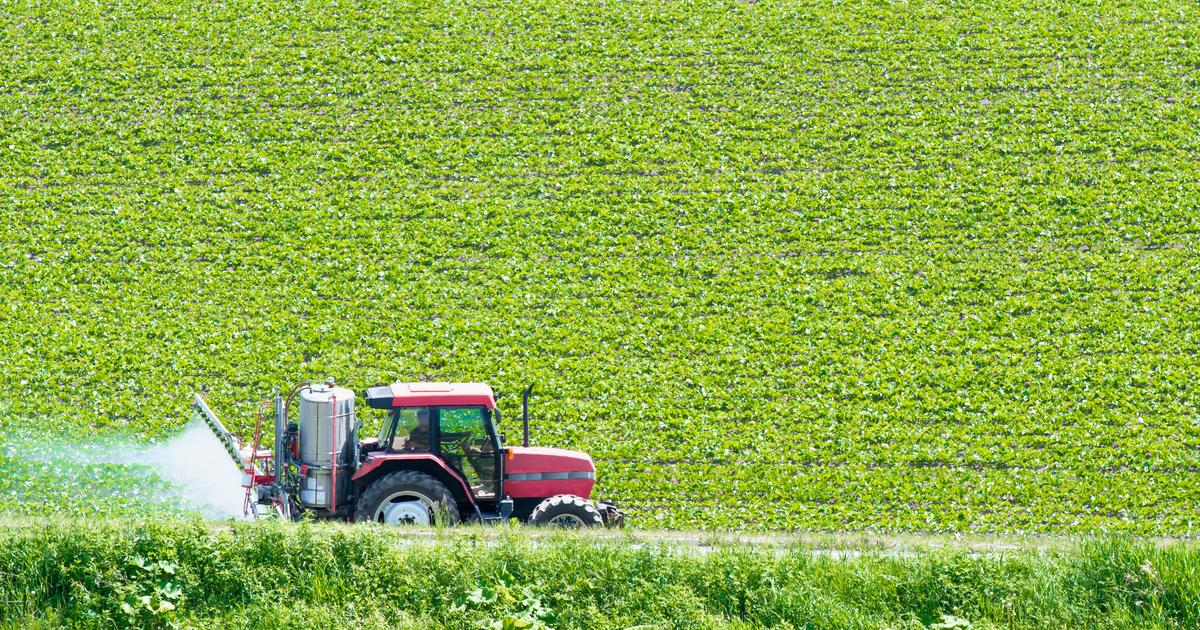Pigs, cattle and Co. should be kept more dignified.
But who pays for the barn conversion?
The traffic light keeps arguing.
Now there could be a turning point.
Berlin/Hannover – Is the “animal welfare tax” coming after all?
It seems possible.
Because a first relevant FDP group has now shown itself open to the obolus to improve livestock husbandry conditions in Germany - according to their own statements in coordination with "leading heads" of the federal FDP.
Last but not least, a traffic light wish of the Greens could come true.
Animal welfare levy: Greens want, FDP quarreled for a long time – is there now a turnaround?
The core problem: the government coalition has identified conditions in the keeping of cattle, pigs and other livestock as in need of improvement.
But improving the situation in the countless stables between Oberstdorf and Flensburg costs a lot of money.
And farmers should not be left alone with this burden.
But who should pay for it?
The FDP parliamentary group in the Lower Saxony state parliament is now open in a position paper for an "earmarked animal welfare tax on meat products".
According to the liberals in Hanover, they should primarily be borne by the grocers: They are responsible “to keep the burden on customers as low as possible and, ideally, to bear all the additional costs”.
Especially if the top of the federal FDP is actually d'accord - as faction leader Stefan Birkner emphasized - it would be a quite remarkable turnaround.
In the traffic light coalition in Berlin, the FDP recently made it clear that it rejects price surcharges for consumers in view of the high inflation.
Almost at the same time, there was a new need for action in view of the burden of the gas surcharge.
The agricultural policy spokesman for the Bundestag FDP, Gero Hocker, told the dpa that his parliamentary group had not yet stood in the way of a proposal "that can be implemented under constitutional and tax law, serves animal welfare and does not fuel inflation".
The Lower Saxony FDP parliamentary group is absolutely correct when it sees trade as a central responsibility and that it has to bear all the additional costs.
"In this way, additional burdens for customers could be avoided, especially in times of rising food prices."
Animal welfare levy: trade should pay - many other questions unanswered
But further questions are still open.
Birkner said the amount of the levy would have to be discussed with those involved by Federal Minister of Agriculture Cem Özdemir (Greens).
However, it must not exceed 40 cents per kilogram.
"From our point of view, that is certainly the maximum that can be talked about." With a consumption of 7.4 million tons of meat per year, this corresponds to income of almost three billion euros, which should flow into an animal welfare fund by federal law.
The levy should apply to all countries of origin and also to wholesalers.
The animal welfare plans of the traffic light government
Özdemir already presented some key points in June: A five-stage system for animal husbandry labeling is planned.
It envisages the types of housing stable, stable and space, fresh air stable, exercise area/free range and organic.
They mainly differ in how much space the animals have and how comfortable their stalls are equipped.
A sum of one billion euros has been earmarked in the federal budget for start-up financing for the conversion of the barn by 2026.
Özdemir recently admitted that this amount is not enough.
For further financing, there is still a "need for clarification" within the coalition, said the minister.
Hocker explained that the basis for more animal welfare remains comprehensive labeling of husbandry and origin, which is agreed in the coalition agreement.
However, the draft submitted by Özdemir still has significant gaps and questions.
"For example, why gastronomy should not be recorded, why the origin is not marked and what should justify a separate organic level".
So far, there has also been a lack of any initiative for the necessary building law simplifications.
Efforts for national solo efforts and additional requirements will be clearly rejected by the FDP.
Traffic light in animal welfare Zoff: Künast is happy about the new FDP course
Greens expert Renate Künast welcomed the fact that the FDP, with the paper from Lower Saxony, had given up its resistance to adequate funding for the conversion of the barn.
"This is important support for more animal welfare and fair competition." The Bundestag has been arguing about animal welfare for a long time - the Merkel government, however, had failed several times with its plans.
It is no coincidence that Lower Saxony is the scene of the current debate: the federal state is a decidedly agricultural state.
More than half of the German fattening chickens and roosters are kept there (60 percent), every third pig (33 percent) and around every fifth beef (21 percent).
(dpa/fn)







